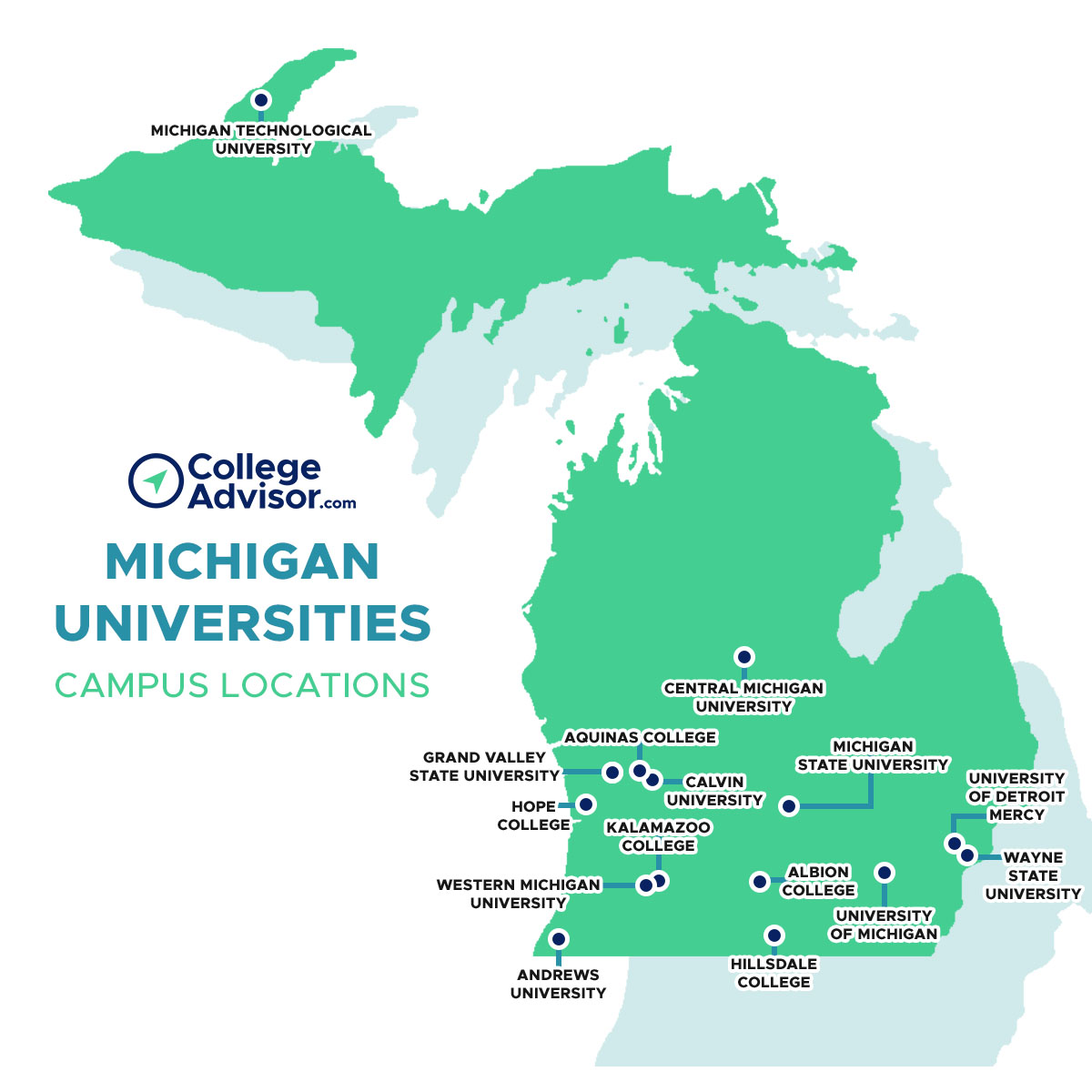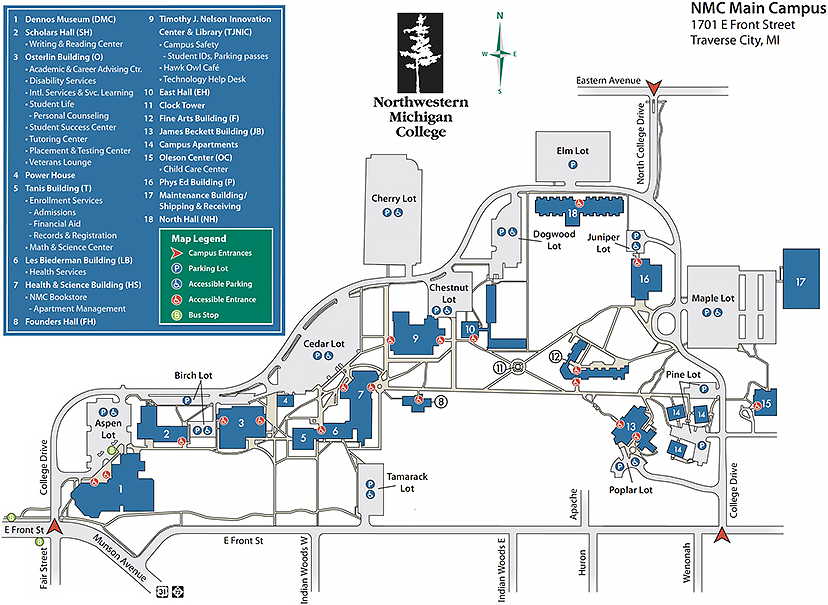Michigan Colleges: Your Roadmap to Higher Education
Michigan Colleges: Your Roadmap to Higher Education

So, you’re ready to take the next step in your journey – college! But with so many options in Michigan, it can feel like navigating a maze without a map. Fear not, fellow student! We’ve got your back. This article will be your guide to understanding the landscape of Michigan colleges, helping you pick the perfect fit for your academic and personal goals.
Michigan: A Hub of Higher Learning
Related Articles: Michigan Colleges: Your Roadmap to Higher Education
- Unveiling the Rich Tapestry of Texas' Native American Heritage
- Uncovering the Native Heritage of Idaho Springs: Discoveries from the Past
- Caddo Land: Do They Still Have A Reservation In East Texas?
- The Ballad Of Reservation Blues: Chasing Dreams On Stolen Land
- Unveiling the Heart of California's Heritage: A Journey into Federal Indian Reservations
Michigan boasts a diverse and impressive higher education system, offering a wide range of programs and experiences to choose from. Whether you’re dreaming of a bustling urban campus or a peaceful lakeside setting, there’s a Michigan college that’s just right for you.
Mapping Your Path: Types of Institutions
Michigan’s higher education landscape is made up of various types of institutions, each with its own unique character and offerings:
-
Public Universities: These institutions are funded by the state, making them generally more affordable than private colleges. Michigan’s public universities are known for their strong academic programs and diverse student bodies.

Private Universities: These universities are funded by private sources, often with a focus on specific academic areas or religious affiliations. Private universities often have smaller class sizes, more personalized attention, and unique campus cultures.
-
Community Colleges: These two-year institutions offer associate degrees and certificates in a wide range of fields. They’re a great option for students looking for affordable options, career training, or a stepping stone to a four-year university.

Navigating the Map: Key Considerations
Choosing the right college is a big decision. Here are some key factors to consider as you explore your options:
Academic Programs: What are your academic interests? Do you want to study engineering, business, the arts, or something else entirely? Make sure the colleges you’re considering offer the programs that align with your goals.
-
Location: Do you prefer a big city, a small town, or a suburban setting? Think about the environment you want to live in and the proximity to your desired activities.
-
Campus Culture: What kind of student body are you looking for? Do you want a diverse and active campus, a close-knit community, or a more traditional setting? Visit campuses, talk to students, and get a feel for the atmosphere.
-
Cost: College can be expensive, so it’s important to consider tuition, fees, and living expenses. Look into financial aid options and scholarship opportunities to help manage the costs.
Exploring the Michigan College Map
Now that you have a better understanding of the factors to consider, let’s dive into some of Michigan’s prominent colleges and universities:
Public Universities:
-
University of Michigan (Ann Arbor): A world-renowned public research university, U of M Ann Arbor offers a wide range of undergraduate and graduate programs, a vibrant campus culture, and a strong alumni network.
-
Michigan State University (East Lansing): MSU is a large, diverse university known for its strong agricultural and engineering programs, its commitment to public service, and its impressive sports programs.
-
Wayne State University (Detroit): Located in the heart of Detroit, Wayne State offers a unique urban experience and a focus on urban research and community engagement.
-
Western Michigan University (Kalamazoo): WMU is a mid-sized university with a strong focus on student success and a commitment to providing a high-quality education at an affordable price.
-
Central Michigan University (Mount Pleasant): CMU is a mid-sized university with a strong focus on student life and a commitment to providing a well-rounded education.
-
Northern Michigan University (Marquette): Located in the beautiful Upper Peninsula, NMU offers a unique blend of academic rigor and outdoor recreation opportunities.
Private Universities:
-
University of Notre Dame (South Bend, Indiana): While technically located in Indiana, Notre Dame is a highly selective private university with a strong Catholic tradition and a reputation for excellence in academics and athletics.
-
Calvin University (Grand Rapids): A private university with a strong Christian tradition, Calvin is known for its strong academic programs and its commitment to intellectual inquiry and faith integration.
-
Hope College (Holland): A small, liberal arts college with a strong emphasis on undergraduate research and community engagement, Hope College offers a close-knit campus community and a beautiful lakeside setting.
-
Albion College (Albion): A small, liberal arts college with a strong focus on experiential learning, Albion College offers a wide range of academic programs and a vibrant campus culture.
-
Hillsdale College (Hillsdale): A private, liberal arts college with a strong emphasis on classical education and individual freedom, Hillsdale College offers a unique and challenging academic experience.
Community Colleges:
-
Henry Ford College (Dearborn): One of the largest community colleges in Michigan, Henry Ford College offers a wide range of associate degrees and certificates, as well as transfer programs to four-year universities.
-
Washtenaw Community College (Ann Arbor): WCC is a highly respected community college known for its strong academic programs and its commitment to providing affordable access to higher education.
-
Oakland Community College (Bloomfield Hills): OCC is a large community college with multiple campuses across Oakland County, offering a wide range of programs and services to meet the needs of its diverse student population.
Beyond the Map: Exploring Your Options
This list is just a starting point. There are many other great colleges and universities in Michigan, each with its own unique strengths and offerings. Take the time to explore different options, visit campuses, talk to students, and find the institution that’s the best fit for you.
Finding Your Perfect Fit: A Personalized Approach
Choosing the right college is a personal journey. Don’t feel pressured to follow the crowd or choose a college just because it’s prestigious or popular. Focus on your own interests, goals, and values. Consider the following questions:
- What are your academic interests?
- What kind of learning environment do you thrive in?
- What are your career aspirations?
- What are your financial considerations?
- What kind of campus culture are you looking for?
Tips for Choosing the Right College:
- Research thoroughly: Explore different colleges and universities online, read brochures, and attend college fairs.
- Visit campuses: Nothing beats experiencing a campus firsthand. Attend open houses, take tours, and talk to students.
- Talk to current students: Ask students about their experiences, their favorite aspects of the college, and any challenges they’ve faced.
- Consider your future career goals: Think about what you want to do after graduation and choose a college that offers programs that align with your career aspirations.
- Don’t be afraid to ask questions: Reach out to admissions counselors, professors, and current students to get answers to your questions.
Map Your Future: A Journey of Discovery
Choosing the right college is a significant step in your life. It’s a journey of self-discovery, exploration, and growth. By taking the time to research, visit, and reflect, you can find the perfect college to help you achieve your dreams. So, grab your compass, set your sights, and embark on your exciting journey to higher education!
FAQ about Michigan Colleges
Q: How can I find the best college for me?
A: The best college for you is the one that aligns with your academic interests, career goals, and personal preferences. Consider factors like program offerings, location, campus culture, and cost. Research, visit campuses, and talk to students to get a feel for different institutions.
Q: How much does college cost in Michigan?
A: College costs vary depending on the type of institution, program of study, and living expenses. Public universities are generally more affordable than private universities. Community colleges are the most affordable option. Be sure to factor in tuition, fees, room and board, books, and other expenses.
Q: What are the best colleges in Michigan for specific majors?
A: Michigan has excellent colleges for a wide range of majors. For example, the University of Michigan is renowned for its engineering programs, Michigan State University is strong in agriculture and business, and Calvin University is known for its liberal arts programs. Research specific programs and rankings to find the best fit for your academic interests.
Q: What financial aid options are available for Michigan students?
A: Michigan offers a variety of financial aid options, including scholarships, grants, loans, and work-study programs. The Free Application for Federal Student Aid (FAFSA) is the primary application for federal financial aid. Colleges also offer their own financial aid packages. Explore your options and apply for all eligible aid programs.
Q: What are the top colleges in Michigan for research?
A: Michigan is home to several top research universities, including the University of Michigan, Michigan State University, and Wayne State University. These institutions are known for their cutting-edge research, strong faculty, and advanced facilities.
Q: What are the best colleges in Michigan for athletics?
A: Michigan has a strong tradition of athletic excellence. The University of Michigan and Michigan State University are both members of the Big Ten Conference and have won numerous national championships. Other colleges in Michigan also have strong athletic programs, including Western Michigan University and Central Michigan University.
Q: What are some tips for applying to college?
A: Start the application process early, research colleges thoroughly, visit campuses, talk to current students, and submit strong applications. Make sure your transcripts and test scores are up to date, and write compelling essays that highlight your strengths and interests. Don’t be afraid to ask for help from counselors, teachers, and family members.
Q: What should I do after I get accepted to college?
A: Once you’ve been accepted to college, make sure to read all the materials carefully and complete any required steps, such as paying a deposit or attending orientation. Start planning for your move, gather necessary supplies, and connect with your new classmates. Get excited about starting this new chapter in your life!

Closure
Thus, we hope this article has provided valuable insights into Michigan Colleges: Your Roadmap to Higher Education. We hope you find this article informative and beneficial. See you in our next article!
